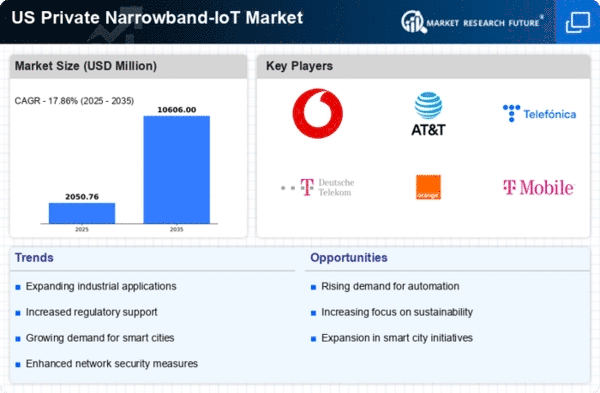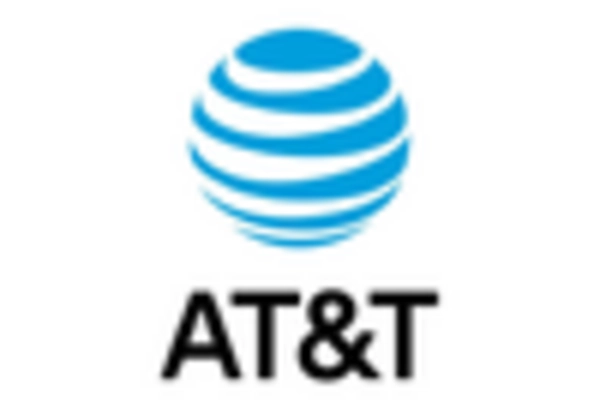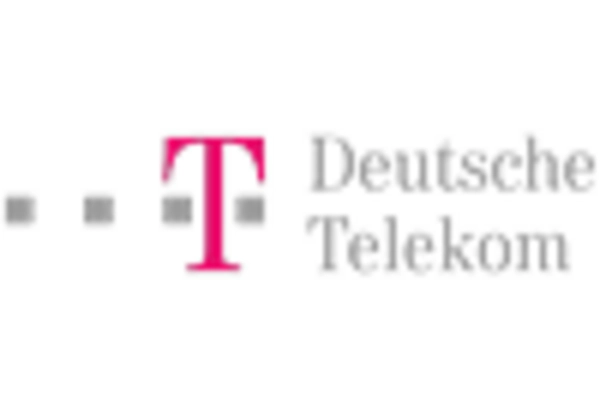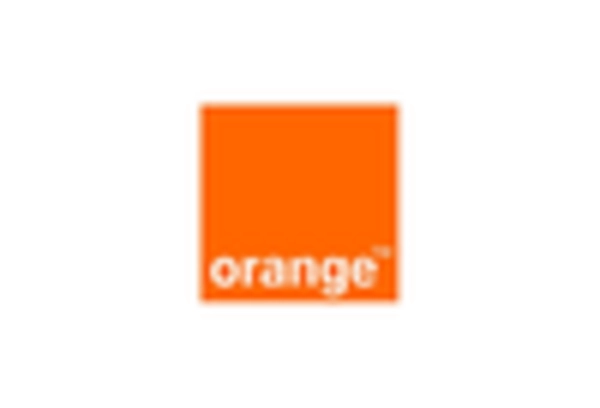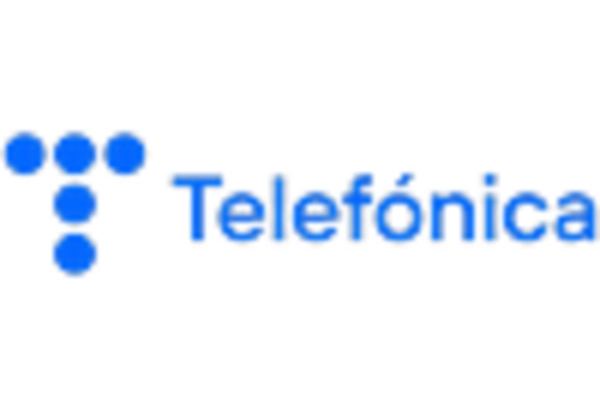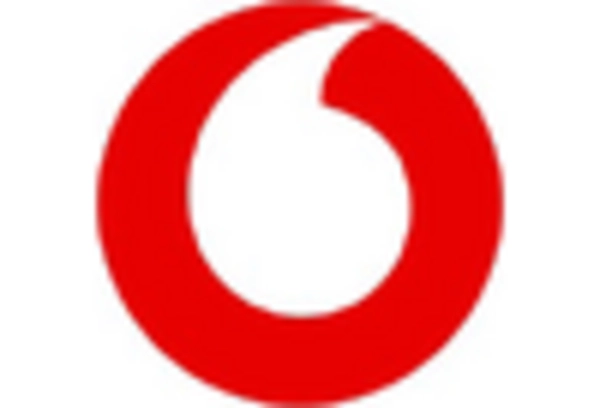Growing Demand for IoT Solutions
The private narrowband-IoT market is experiencing a surge in demand for IoT solutions across various sectors.. Industries such as manufacturing, agriculture, and logistics are increasingly adopting IoT technologies to enhance operational efficiency and reduce costs. According to recent data, the IoT market in the US is projected to reach $1 trillion by 2025, indicating a robust growth trajectory. This demand is driven by the need for real-time data analytics, automation, and improved connectivity. As organizations seek to leverage IoT for competitive advantage, the private narrowband-iot market is positioned to benefit significantly from this trend, providing tailored solutions that meet specific industry requirements.
Advancements in Network Infrastructure
The evolution of network infrastructure is a pivotal driver for the private narrowband-IoT market.. The rollout of 5G technology in the US is expected to enhance connectivity and enable more efficient data transmission for IoT devices. With 5G's low latency and high capacity, businesses can deploy private narrowband-iot solutions that support a greater number of devices and applications. This advancement is particularly relevant for industries requiring real-time data processing, such as healthcare and transportation. As network capabilities improve, the private narrowband-iot market is likely to expand, offering innovative solutions that cater to the growing needs of various sectors.
Regulatory Support and Standardization
The private narrowband-IoT market is bolstered by favorable regulatory frameworks and standardization efforts in the US.. Government initiatives aimed at promoting IoT adoption, such as the National Strategy for Trusted Identities in Cyberspace, create a conducive environment for market growth. Furthermore, the establishment of standards by organizations like the 3rd Generation Partnership Project (3GPP) ensures interoperability and security, which are critical for private networks. This regulatory support not only enhances consumer confidence but also encourages investment in private narrowband-iot technologies. As a result, the market is likely to see increased participation from various stakeholders, including telecom operators and technology providers.
Increased Focus on Operational Efficiency
Organizations across the US are increasingly prioritizing operational efficiency, which serves as a significant driver for the private narrowband-iot market. By implementing IoT solutions, businesses can streamline processes, reduce waste, and enhance productivity. For instance, in manufacturing, IoT-enabled devices can monitor equipment performance and predict maintenance needs, thereby minimizing downtime. This focus on efficiency is reflected in a survey indicating that 70% of companies plan to invest in IoT technologies to optimize operations. Consequently, the private narrowband-iot market is likely to see heightened interest from enterprises seeking to leverage these technologies for improved performance and cost savings.
Rising Need for Enhanced Security Solutions
As the number of connected devices continues to grow, The private narrowband-IoT market is driven by an escalating need for enhanced security solutions.. Cybersecurity threats pose significant risks to organizations, prompting them to seek robust IoT security measures. The market is witnessing an increase in demand for private networks that offer greater control over data and improved protection against breaches. According to industry reports, investments in IoT security are expected to reach $3 billion by 2025. This trend indicates that businesses are prioritizing security in their IoT strategies, thereby creating opportunities for the private narrowband-iot market to provide specialized solutions that address these concerns.
.png)

